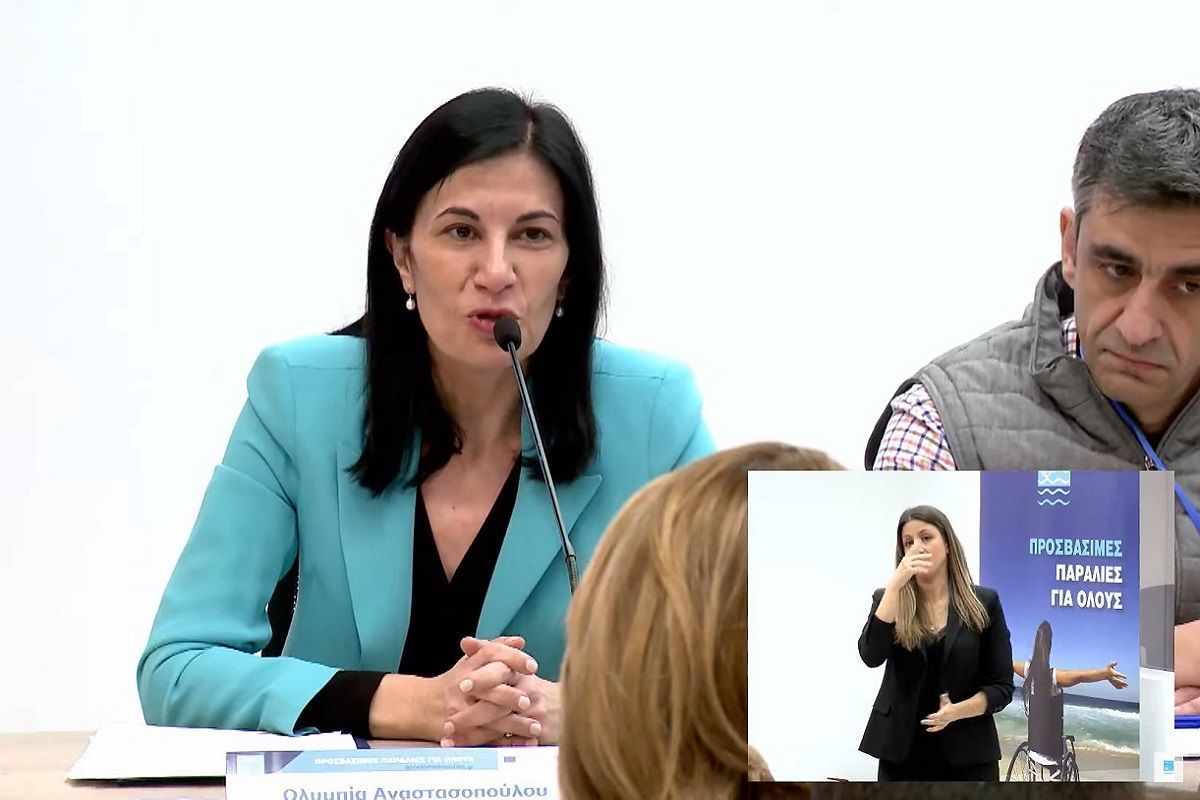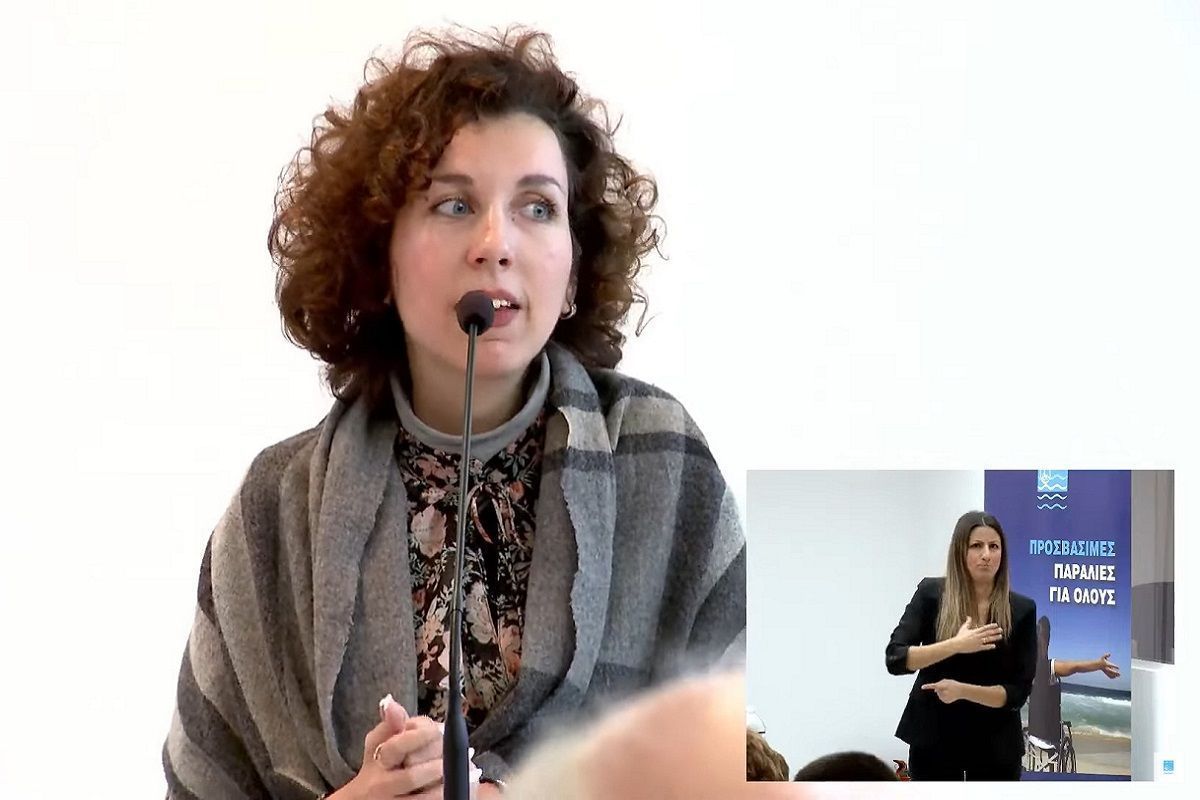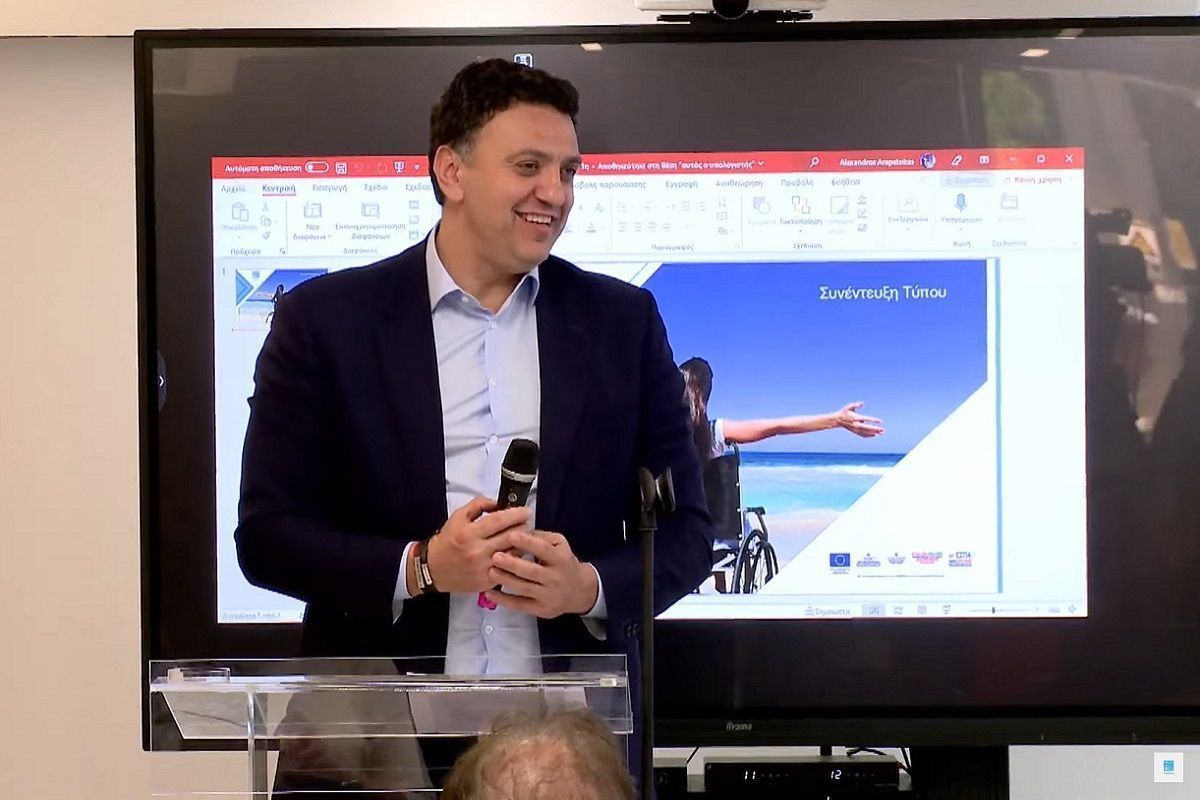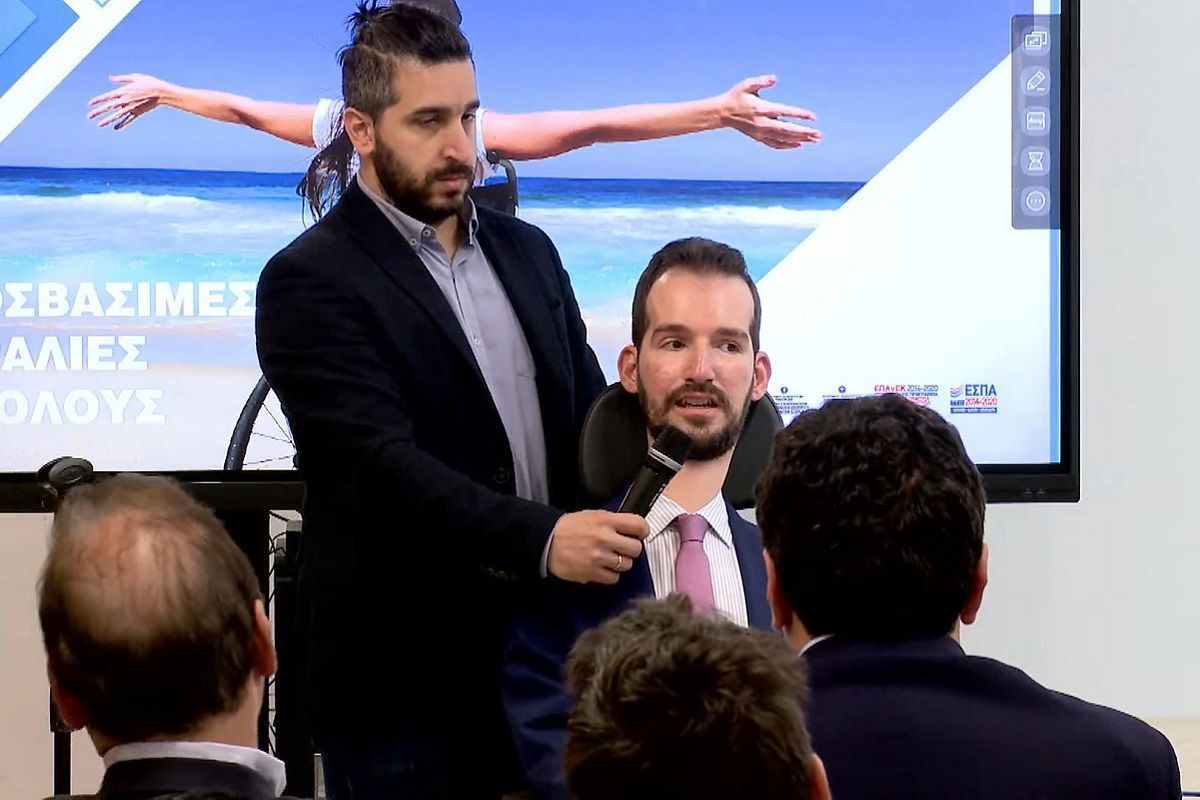More than 250 Beaches Across Greece are Becoming Accessible
More than 250 beaches all over Greece will be accessible by this summer, Tourism Ministry officials announced during the “Accessible Beaches for Everyone” media event on Thursday.
Organized by the ministry’s Tourism Policy and Development department, which oversees the implementation of the NSRF 2014-2020 “Competitiveness, Entrepreneurship and Innovation” program, the event included an update of the “Creation of Integrated Accessible Tourist Marine Destinations” project that aims to make Greek beaches accessible to all.
Thanks to the 15 million euros project, 147 beaches across Greece have, until today, seen the supply and installation of non-permanent assembling mechanisms for the autonomous sea access for people with disabilities or limited mobility.
Furthermore, auxiliary facilities such as removable changing rooms, portable sanitary facilities, corridors, shading and protection areas for bathers, as well as parking areas for people with disabilities, were also created in these areas transforming them into fully accessible beach destinations.
“Creating accessible beaches means that we respect everyone’s right to enjoy our country’s beautiful destinations,” said Tourism Minister Vassilis Kikilias, adding that financing from the Recovery and Resilience Fund will allow the program to expand in the future.
Ninety-six Greek municipalities are participating in the “Accessible Beaches for Everyone” program with another 115 of their beaches becoming accessible to all by the beginning of summer 2023, bringing the total number of accessible beaches to 287.

General Secretary of Tourism Policy and Development Olympia Anastasopoulou. Photo source: Tourism Ministry.
“Making beaches and tourism facilities accessible means defending the fundamental human rights of equality and freedom,” said General Secretary of Tourism Policy and Development Olympia Anastasopoulou.
During her speech, Anastasopoulou underlined the importance of accessible tourism since tourism businesses that support it can greatly benefit from a target group (people with disabilities and their caregivers) of more than 2 billion people across the globe who spent 68 billion euros annually to travel, as WHO data indicates.
Greek National Tourism Organization (GNTO) President Angela Gerekou welcomed the progress of the project and noted that the “seatrack” mechanism used to make beaches accessible was created in Greece by a University of Patras team. She called for all local government organizations to participate in the project.
“ ‘Tourism for all’ isn’t just a logo. It is a message for everyone that the future of tourism isn’t just about being sustainable or accessible. It is about being ethical,” said Gerekou.
Other keynote speakers of the media event included:
- Greek MEP Stelios Kympouropoulos, who underlined the necessity to create not just accessible holiday destinations, but destinations where people with disabilities can be equally catered to their needs as anyone (ie. recreation, entertainment).
- Greek Paralympic medalist and World Champion Antonis Tsapatakis, who stressed out the importance of being able to want in a society that sees disabilities and creates barriers.
- Greek Boccia Paralympic medalist and clinical psychologist Anastasia Pyrgioti, who described what it means for people with disabilities to travel and the education plan that needs to be put into action to tackle disability as a social phenomenon.

Boccia Paralympic medalist and clinical psychologist Anastasia Pyrgioti. Photo source: Tourism Ministry.
- Corfu Mayor Meropi Ydraiou, who shared her experience at an accessible beach on Corfu when a French mother thanked her because her daughter had managed to have her first ever swim.
- Glyfada Mayor Giorgos Papanikolaou, who spoke about the importance of autonomous living and the municipality’s pioneer work in defending “everyone’s right to have fun”.
The Tourism Ministry has launched a site in Greek and English presenting an interactive map with the current accessible beaches around Greece, as well as social media with video material in 4 different languages (English German, French, Italian).
Furthermore Greece’s accessible beach destinations will be digitally promoted to a targeted audience (PWDs and their caregivers) in Greece, as well as at the country’s most popular European tourism markets (Great Britain, France, Germany, Italy and Cyprus).








